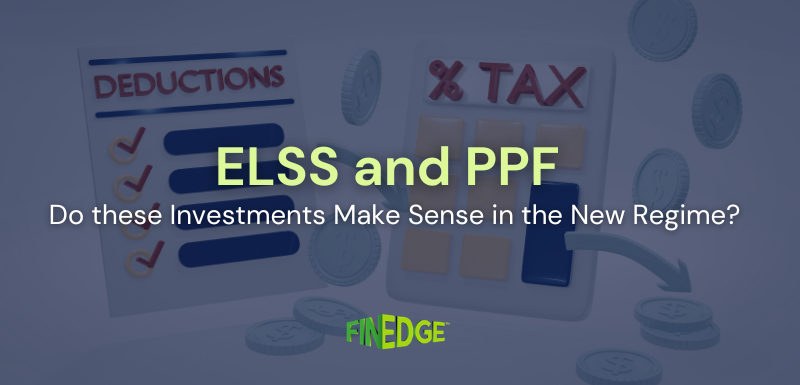Why you need a Financial Advisor - now more than ever!

History tells us that stocks tend to outperform all asset classes over the long-term. But while paper returns from equities and equity mutual funds remain strikingly impressive, the unfortunate reality is that few investors actually end up reaping their rewards to the fullest possible extent. More often than not, the reason for this dichotomy between published and actual returns is the lack of support of a qualified, competent and unconflicted Financial Advisor acting on your behalf.
The need for support from a Financial Advisor becomes all the more pronounced during times like these. Gripped with COVID-19 induced panic, markets have turned fiercely volatile - and most portfolio values have sunk deep into the red. Even the safe haven of debt funds has proved fickle. As an investor, your mind will undoubtedly be spinning with a hundred questions. Should you stay invested or redeem? Should you switch your money to less risky assets… or switch your money into more risky assets? Will markets continue to fall further? Should you rebalance your portfolio at this time? Should you stop your SIPs and restart them at a more opportune time? And, so on and so forth. In testing times like these, a Financial Advisor can help you stay on the straight and narrow path to wealth creation. Here’s how.
Saves you from Yourself
Guess who is your worst enemy when it comes to creating wealth from your investments? The answer is – you, yourself! As markets oscillate between the depths of pessimism and the heady heights of euphoria, even the most seasoned investors fall prey to greed, fear and a host of other behavioural traps. By drawing upon their experience of past market cycles, seasoned Advisors can help you sidestep regrettable investment decisions such as bailing out at market bottoms or piling on investments near market tops.
Steers you clear of Avoidable Investments
It’s a sad truth that a poor investment is always lurking around the corner. From the ULIP saga of the 2000s to the YES Bank AT-1 bond write off crisis this year, investors often tend to fall prey to bad investments - usually goaded by salespeople masquerading as Financial Planners. Having a trusted Financial Advisor who can trawl through the fine print on your behalf can be a great source of strength for you, as you’ll be able to steer clear of getting locked into poor investments that can end up destroying a great deal of your hard earned money over the long term.
Helps you see the Bigger Picture
By aligning your investments to your long-term and short-term goals, A Financial Advisor can help you see the bigger picture with respect to your investments. In ensuring that you invest according to a fixed roadmap with pre-defined time bound milestones, your Advisor can ensure that your investments are perfectly aligned to the tenor of your goals; hence, only long-term money flows into higher risk assets. As a result, you’ll be a lot more immune to the ups and downs of the markets, because your perspective to investing will be dramatically and positively altered.
Helps you pick the right investments
Left to their own devices, most investors tend to use short term past returns as the barometer for choosing investments. However, this myopic tendency is the exact opposite of ideal, because what goes up comes down - and vice-versa! Using their expertise and drawing upon concrete research that is generally not available in the public domain, a Financial Advisor can ensure that you select the right investments for your portfolio. In doing so, your Advisor ensures that your portfolio is spread across investments that are poised to outperform in the future and deliver fantastic risk-adjusted returns to you over your defined investment timeframe.
Are you ready to benefit from the expertise of India’s Leading Financial Planning company? Get in touch with us today to begin your journey to Financial Freedom!
Your Investing Experts
Relevant Articles
Should You Continue Investing in ELSS and PPF in the New Tax Regime?
With Section 80C deductions removed under the new tax regime, ELSS and PPF must now stand on their investment merit. The decision is no longer about tax savings alone, it is about suitability, liquidity, and long-term goals.
When Is the Right Time to Start Investing for Your Goals?
When is the right time to start investing for your goals? Many believe the answer depends on market stability, income comfort, or economic certainty. In reality, the right time is when your goals are clear and you are prepared to act with discipline. Wealth is rarely created by waiting. It is built through consistent participation guided by a defined investment process.
How to Adjust Your Investments After a Salary Raise
A salary hike is more than a pay revision, it is an opportunity to realign your financial direction. The smartest response to higher income is not immediate lifestyle expansion, but a structured review of your goals, debt position, and investment contributions. When handled thoughtfully, each raise can accelerate wealth creation rather than simply increase monthly expenses.
.png)

.png)
